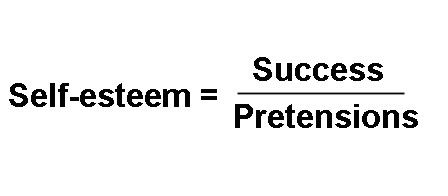I rarely write about sports because to me they are a fun distraction from more pressing matters, one ultimately of far less importance to the grand scheme of things. To be sure, I’ve always been aware of the base inequalities lurking underneath the surface, whether it be the pro players who make obscene amounts of money to play a game or the college kids who are treated as prized endowment cash cows for their individual universities, colleges, or conferences. Though I watch the games, once they have drawn to a conclusion, I turn off my television or internet feed and go on about the rest of my life. What has always troubled me the most is the extent to which some will pursue the minutia and exacting analysis of fandom, which if applied with even half the effort and half the obsession to a cause that would make strides to say, educate the illiterate or aim to reform a societal malady of choice, would produce impressive results.
Tag: self-esteem
Nov 20 2007
America’s fractional self-esteem
According to William James, arguably one of the most insightful students of the mind, certainly since his own time, self-esteem can be represented as a fraction, with one’s pretensions in the denominator, and one’s actual successes in the numerator:
Thus, one can increase self-esteem either by increasing the numerator by increasing actual successes, or by decreasing one’s pretenses to greatness. It was James’s claim that both self-satisfaction (high self-esteem) and self-abasement (low self-esteem) are intimately related emotional primitives. The barometer of self-esteem could wax and wane seemingly due to various organic causes from day to day, but in non-pathological cases, it was overall subject to personal dispositions toward pretense and reality-based, objective outcomes.

